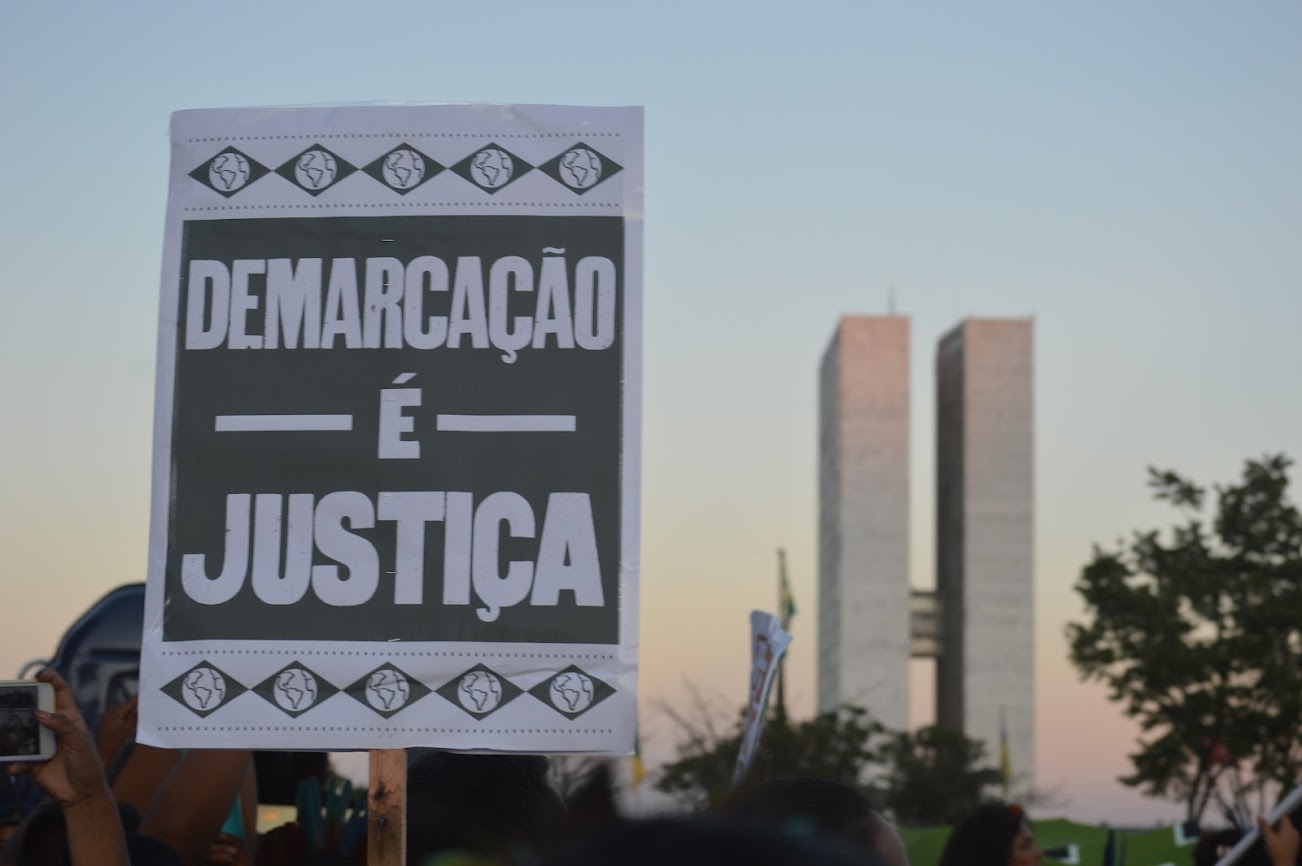Organizations present risks of “time frame” bill to UN
In an urgent appeal submitted to the United Nations, NGOs point out that Bill 490 prevents the demarcation of indigenous lands and threatens existing territories
 Acampamento Terra Livre. Foto: Camila Mikie/ Conectas
Acampamento Terra Livre. Foto: Camila Mikie/ Conectas
Five civil society organizations submitted this Tuesday, May 30, an urgent appeal to the United Nations against Bill 490/2007 – pending in the Lower House of Congress – that prevents the demarcation of indigenous lands, threatens existing indigenous territories and deprives native populations of their constitutional rights.
In addition to warning of the risks of the proposed legislation, Conectas, APIB (Association of Indigenous Peoples of Brazil), COIAB (Coordination Body of Indigenous Organizations from the Brazilian Amazon), the Arns Commission and ISA (Socioenvironmental Institute), signatories of the appeal, are asking the UN request that the Brazilian State recognize the unconstitutionality of the bill.
The document is addressed to the following UN rapporteurs: José Francisco Cali Tzay, special rapporteur on the rights of indigenous peoples; Ashwini K.P, special rapporteur on contemporary forms of racism, racial discrimination, xenophobia and related intolerance; Fernand de Varennes, special rapporteur on minority issues; Mary Lawlor, special rapporteur on the situation of human rights defenders; David Boyd, special rapporteur on human rights obligations related to the enjoyment of a safe, clean, healthy and sustainable environment; Ian Fry, special rapporteur on the promotion and protection of human rights in the context of climate change; and Alexandra Xanthaki, special rapporteur in the field of cultural rights.
On Wednesday, May 24, members of Congress approved fast-track status for the bill, allowing it to be voted in a full session of the House without proper consultation in congressional committees.
Bill 490 defends the so-called “time frame” thesis, which considers the date of the promulgation of the Brazilian Constitution, October 5, 1988, as a legal limit for the recognition of the right to indigenous territories. This thesis ignores the rights violations that indigenous peoples have suffered throughout history, including forced migrations.
Read more:
In the appeal, the organizations highlight four critical points of the bill: the unconstitutionality of the bill; how it prevents the demarcation of indigenous lands; the contempt for consultation and free, prior and informed consent; and, finally, the discrepancies with the efforts to protect the environment and tackle climate change.


